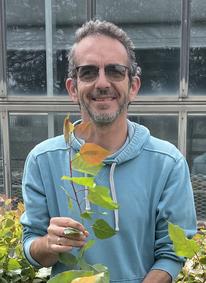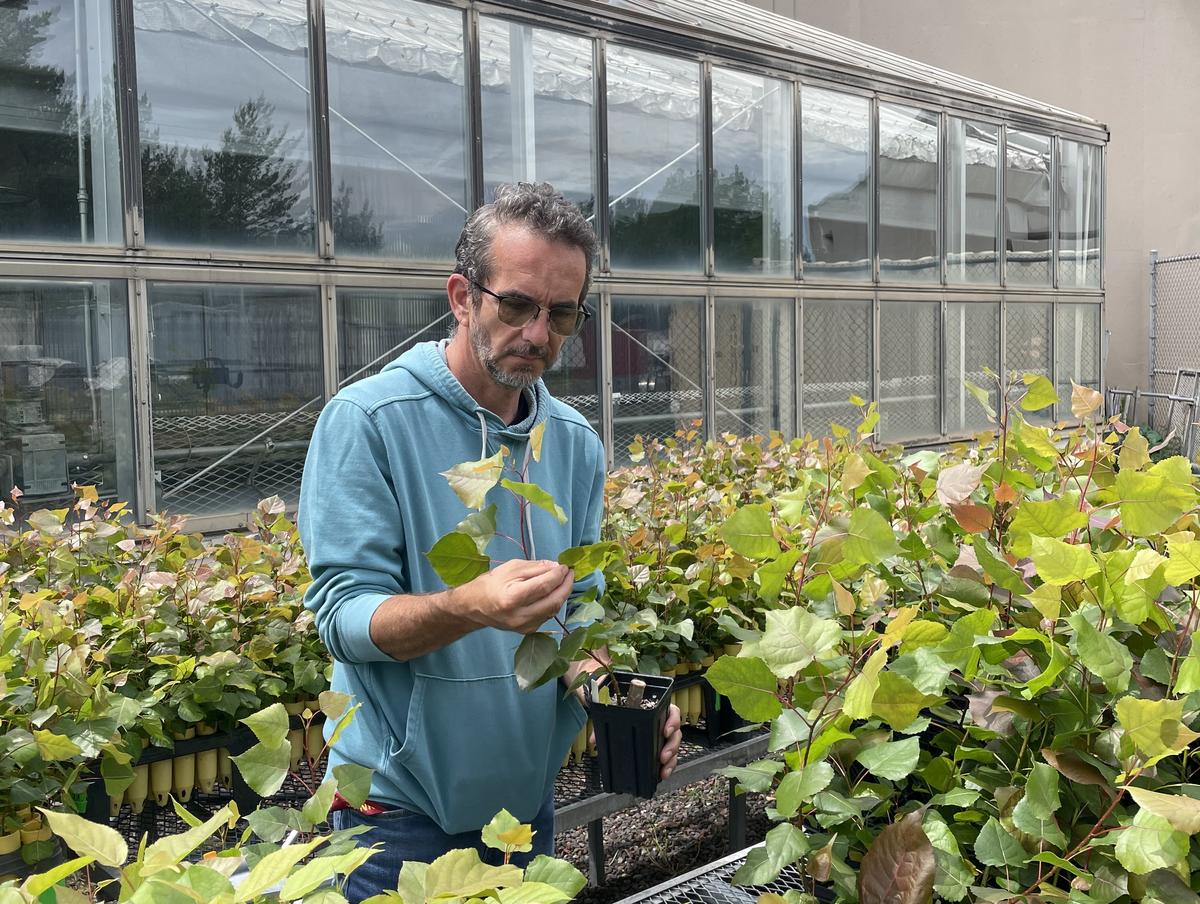Trees can adapt to environmental changes. But over a tree’s long lifetime, natural selection is a very slow process. Our world, on the other hand, is changing fast.
Meanwhile, the need for trees is growing. We have an increasing need for tree ecosystem services like carbon capture, land reclamation and pollution clean-up, and increasing demand for sustainable bio-based products.
NRRI Forest Scientist and Hybrid Poplar Program Manager, Andrej Pilipovic, is focused on improving trees to cope with global climate change challenges to keep a robust tree resource on the landscape.
“My work is on improving nature’s resilience with NRRI’s hybrid poplar program,” he said. “It’s already one of the greatest active poplar breeding programs in the U.S., but we’re taking it to the next level and driving commercial success.”
Pilipovic brings 21 years of tree research experience from Serbia to NRRI. He obtained his doctoral degree from the University of Novi Sad in 2012, having previously completed bachelor’s and master’s degrees in forest research there.
It is a skillset that came to NRRI at the right time. After 20+ years of development, most of the NRRI Hybrid Poplar Program team retired in 2022. Now the application of these fast-growing species to addressing real world problems provides a new research pathway to be explored.

“Fast-growing trees can produce woody biomass for a variety of purposes, like energy, bio-fuels or materials,” Pilipovic said. “These uses can be efficiently combined with other ecosystem services, like soil and water purification, land reclamation and carbon sequestration.”
Challenges & Opportunities
Pilipovic is working to understand a variety of research parameters and techniques to identify the most suitable tree cultivars for specific purposes. He’s also focused on conserving genetic diversity of tree species that will provide resilience to the forest ecosystem under climate change scenarios.
“Investigating the important role of forest trees and discovering ways to improve them provides both challenges and opportunities,” he added. “No matter which research avenue we’re exploring, the excitement remains the same for me.”
Pilipovic is now managing about 30 acres of hybrid tree growth plots in northern Minnesota. The test sites are monitored several times per year for productivity, disease resistance, and adaptation to local conditions.
For Real Research
Applying his previous expertise in creating poplar cultivars provides Pilipovic many opportunities for collaboration across many NRRI disciplines.
He has been steadily building a research team, recently adding a research technician, Josh Kragthorpe, to rejuvenate the poplar collections and boost production of plant material. His team is also working closely with NRRI’s Business Development team to supply commercial quantities of the recently launched InnovaTreeTM cultivar and identify other cultivars with commercial potential.
“Having a great supervisor and colleague in Forest and Land Group Leader John Du Plissis has been key to navigating my new role, and also connecting me with NRRI colleagues and external stakeholders,” said Pilipovic.
The programs’ next goal is to further test and commercialize the hybrid poplars created thus far for potential applications. They are further defining “generalist” (thrives in a wide variety of conditions) and “specialist” (thrives only in a narrow range of conditions) cultivars. They will also develop user manuals to grow the trees for multiple applications.
Off Hours
As William Shakespeare is known to have said, “The earth has music for those who listen.” And Pilipovic has tapped into a musical side of his biology background.
“I’ve been playing guitar since I was 16 and most of my free time is spent enjoying guitar,” he said.
He finds Duluth’s music scene an easy resource, with open mic and open stage performance opportunities. He recently enjoyed the Homegrown Music Festival and is looking forward to summer concerts.
He and his family also enjoy traveling and have traversed much of Europe. “And now we are looking forward to traveling across the vast spaces of the United States,” he added.
